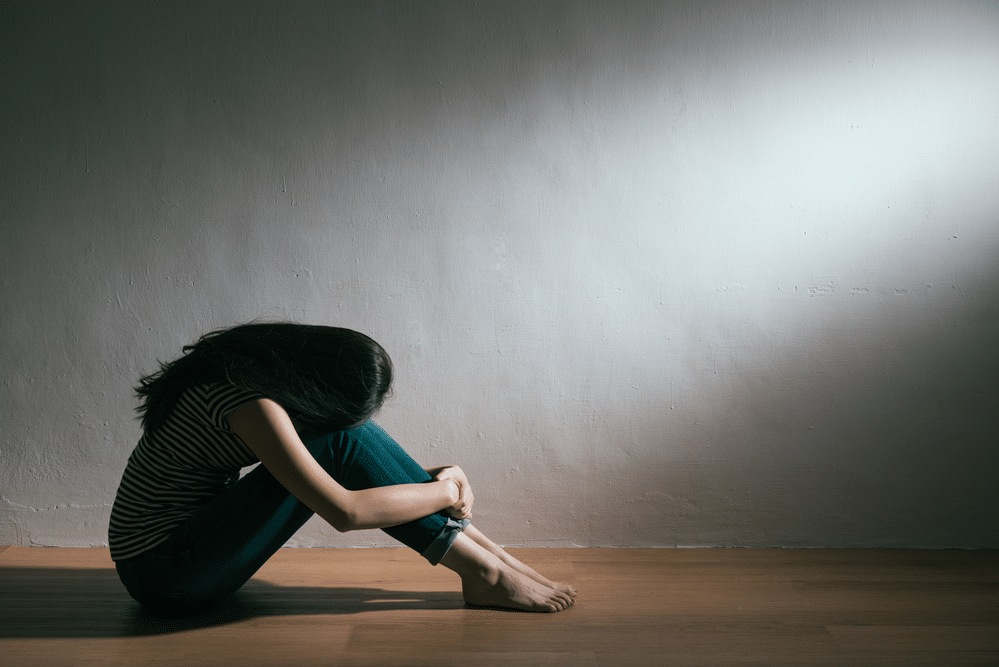Table of Contents
Getting mental health treatment is the most important thing you can do for your mental well-being. While there are many ways to receive treatment for mental health issues, inpatient mental health care is the best option. Staying at an inpatient mental health facility lets you take full advantage of a wide range of treatment programs in an environment designed to support healing. Inpatient mental health facilities offer a safe place to fully immerse yourself in the treatment process. You can benefit from this treatment at Behavioral Health Centers’ inpatient mental health center in Jupiter, FL. Our professional team is always ready to help anyone with serious mental illness.
What Is Mental Illness?
Mental health refers to your state of mind and how it affects your thoughts, feelings and behavior. Life events impact your mental health in positive or negative ways. Stress, fear or grief affect your mental health and can make you look at yourself and others differently. For example, if someone breaks into your house, fear can make you view strangers and even people you know suspiciously.
However, experiencing bad mental health doesn’t mean you have a mental illness. A mental illness is a condition that alters how you think, feel and behave. Professionals diagnose a mental illness based on its impact on your life. People with mental illnesses often experience problems fulfilling their personal, relationship and professional responsibilities.
According to the National Alliance on Mental Illness, the warning signs of mental illness include:
- Frequent, unpredictable and prolonged mood changes
- Shifts in eating, energy and sleeping patterns
- Inability to accomplish activities of daily living, e.g., bathing, grooming and dressing
- Lack of insight or control over your own thoughts and behavior
- Difficulty understanding and relating with others
- Physical symptoms such as headaches and stomach pain

Types of Mental Health Disorders
While mental illnesses may share some warning signs, specific mental health disorders produce a wide range of symptoms. Below are some of the most common mental illnesses in the U.S. and their symptoms.

Anxiety Disorders
Anxiety disorders are the most common mental illnesses in the U.S., affecting around 48 million people across the country. Conditions such as social anxiety, generalized anxiety, separation anxiety and phobias are included under the umbrella of anxiety disorders.
Symptoms of anxiety disorders include:
- Difficulty concentrating
- Muscle tension and fatigue
- Restlessness and hypervigilance
- Heart palpitations, sweating, and trembling
- Avoiding places or situations that could trigger an anxiety response
Depression Disorders
As with anxiety, there are various forms of depression. Some of the conditions covered by this term are major depressive disorder (MDD), seasonal affective disorder (SAD), postpartum depression (PPD) and premenstrual dysphoric disorder (PMDD).
Symptoms of depression include:
Low energy levels
Persistent feelings of sadness, emptiness or hopelessness
Feeling guilty or helpless
Reduced or total lack of interest in hobbies
Changes in appetite and sleep patterns
Suicidal ideation or suicide attempts
PTSD
Around 9 million Americans struggle with post-traumatic stress disorder, a condition caused by undergoing traumatic or scary events. Symptoms of PTSD include:
- Distressing memories, nightmares and flashbacks of the traumatic experience
- Emotional and physical distress in response to reminders or triggers of the trauma

Personality Disorders
Personality disorders are mental health problems that affect a person’s view of society, impairing their ability to maintain healthy social relationships. The 10 disorders covered by the term affect 9.1% of Americans. Borderline personality disorder accounts for 1.4% or 3.5 million of those with a personality disorder.
There are three groups of personality disorders. Cluster A personality disorders include paranoid personality disorder, schizotypal disorder and schizoid personality disorder. These conditions cause behavioral eccentricities, with symptoms such as:
- Difficulty trusting people, leading to unfounded suspicions of being insulted, disrespected or betrayed
- Extreme avoidance of social or sexual relationships
- Inability to feel and express appropriate emotions
- Magical thinking or delusions
The four conditions in Cluster B personality disorders are antisocial personality disorder, borderline personality disorder, histrionic personality disorder and narcissistic personality disorder. Symptoms include:
- Disregard for societal rules
- Lying and manipulating for personal gain
- Impulsive or explosive behaviors
- Unhealthy attachment patterns, from avoidance to deluded feelings of intimacy
- Inability to handle criticism
- False feelings of grandeur, causing attention-seeking behavior
Cluster C personality disorders cause excessive anxiety and fear, affecting how a person relates to others. The group encompasses three disorders: avoidant personality disorder, dependent personality disorder and obsessive-compulsive personality disorder.
The symptoms of Cluster C personality disorders include:
- Desire to and distress at the inability to fully control people and situations
- Excessive emotional dependency and people-pleasing behaviors
- Fear of disapproval or ridicule, affecting reception to correction and criticism
Causes of Mental Illness
Understanding the root cause of mental illnesses is key to sufficiently treating them. However, there isn’t a singular cause for mental illness. On the contrary, mental illnesses are the result of a combination of different factors, including:
Genetics
Blood relatives, e.g., parents, can pass down genes that increase your chances of getting a mental illness.
Environmental factors
Exposure to alcohol, drugs or toxins in the womb or as a child can contribute to mental illness.
Life experiences
Stress, physical abuse, sexual assault, loneliness or other forms of trauma contribute to mental illness.
Substance abuse
Misusing alcohol and other drugs can raise your chances of experiencing a mental illness.

Mental Health Treatment Program in Jupiter, Florida
Behavioral Health Centers offers various inpatient programs for drug and mental health treatment. Depending on your needs, you can benefit from individual therapy or undergo family therapy and group counseling. Our extensive programs ensure you get the best professional help from certified counselors at our drug rehab in Jupiter.

Dialectical Behavior Therapy
At Behavioral Health Centers, we use dialectical behavior therapy (DBT) to treat conditions like borderline personality disorder and PTSD. This therapy method helps you learn to be present and mindful, resulting in better emotional regulation and behavior control when faced with distressing triggers.
Cognitive Behavioral Therapy
In cognitive behavioral therapy (CBT), you and a professional therapist examine the thought patterns contributing to your mental health problems. The therapist provides counseling and support as you develop healthy thought patterns and coping mechanisms to combat future triggers for your mental illness.
EMDR Therapy
Eye movement desensitization and reprocessing (EMDR) therapy is designed to help you deal with emotional distress caused by a traumatic event. We use EMDR to help you process the emotions and physical reactions aroused by traumatic memories. Our therapists have found EMDR useful in treating PTSD caused by sexual trauma or physical assault and in helping war veterans adjust to regular life.
Neurobehavioral Therapy
Neurobehavioral therapy (NBT) is another “non-talk” therapy used to treat conditions such as eating disorders and substance use disorders. NBT helps people learn better ways to manage everyday stress, impulses and irritability.
Dual Diagnosis Treatment
Our experts at Behavioral Health Centers realize that at least 50% of people with mental health conditions deal with a substance abuse problem. Dual diagnosis refers to identifying and treating the mental illness co-occurring with your substance abuse disorder. Common co-occurring disorders include depression, anxiety disorders, bipolar disorder, schizophrenia and PTSD.
When you have a dual diagnosis, our mental health counselors use various forms of therapy to help you identify healthy coping mechanisms that can help you get through a future mental health crisis without turning to drugs.
Aftercare
We don’t stop caring for you after you finish treatment at our inpatient mental health care facilities in Jupiter, Florida. Aftercare services ensure you receive mental health and addiction support on an outpatient basis even as you continue your day-to-day life.
After your inpatient stay, you can still participate in individual and group counseling sessions. Our case management team can provide you with medications and other services offered to help people maintain good mental health after finishing treatment.

The Behavioral Health Centers’ Difference
Behavioral Health Centers is a modern facility fully equipped to support you through mental health treatment. We also offer quality care for drug and alcohol addiction problems. When receiving inpatient mental health treatment at our rehab center in Jupiter, FL, you’ll have a different experience from typical psychiatric and rehab facilities.
Our nonclinical setting provides luxury amenities such as private rooms, bowling greens, movie theaters and massage services. We also have expert chefs who cater to your dietary preferences. After undergoing various therapeutic activities during the day, you can retire to a clean, private room where you can wind down, reflect on your progress and prepare for the next day’s events.

Behavioral Health Centers offers mental health services all over Florida. Aside from our facilities in Jupiter, FL, we help people from:
- Boynton Beach
- Juno Beach
- Lake Worth
- North Palm Beach
- Palm Beach Gardens
- Port St. Lucie
- Royal Palm Beach
- West Palm Beach
We also accept insurance coverage from major companies that include AETNA, Blue Cross, and CIGNA. If you want to receive treatment at our inpatient mental health facility in Jupiter, Florida, fill out the online form or contact us directly at 772-774-3872 so we can confirm which treatment options your insurance covers.


